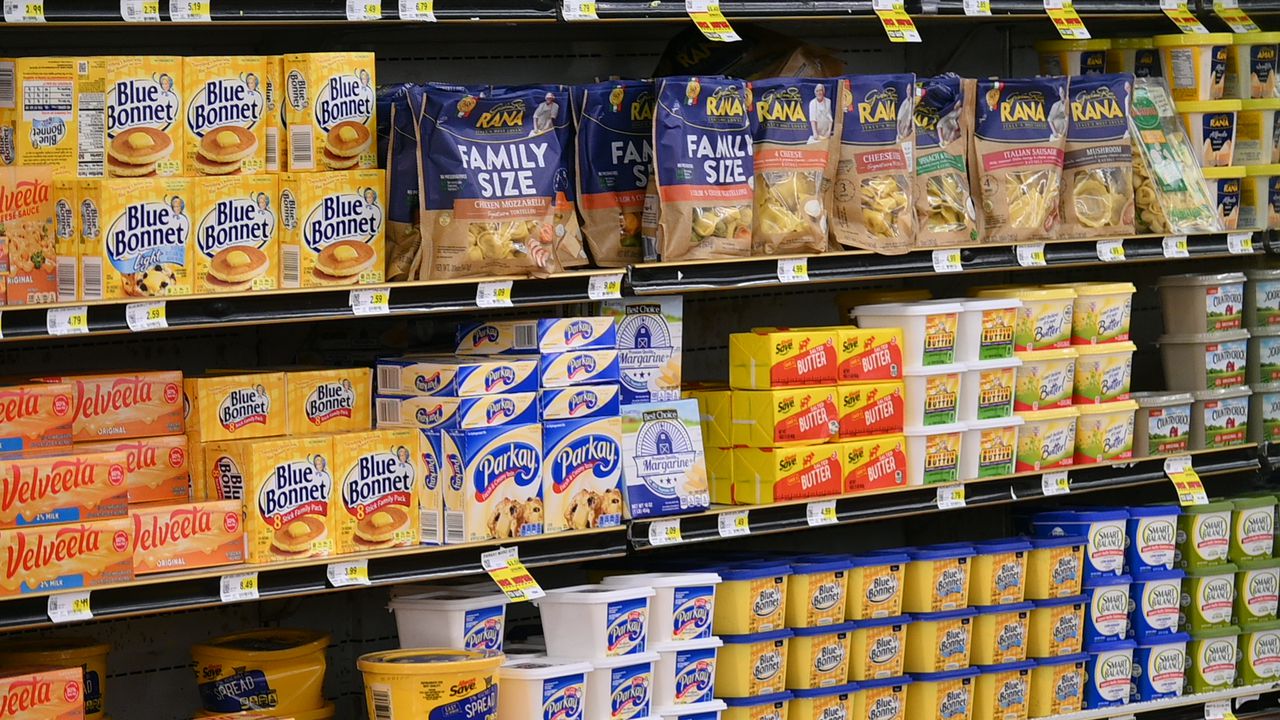Alabama Gov. Kay Ivey signs grocery tax cut bill
Alabama grocery shoppers will see a little bit sliced from their bills starting on September 1.
A spokeswoman for Gov. Kay Ivey confirmed Thursday that the governor signed HB479 into law, which is a one percentage point reduction in the state’s 4 percent sales tax on groceries.
Read more about the tax cut:
A second 1 percentage point of the sales tax cut could be cut on September 1, 2024. But for that to happen, the economy will have be healthy. That tax cut will only be implemented if the state’s Education Trust Fund has grown by 3-1/2% over the previous fiscal year.
The new law uses the same definition of food as the federal Supplemental Nutrition Assistance Program, or SNAP. SNAP foods include almost all foods found in the aisles of a grocery store: Fruits, vegetables, meat, poultry, fish, dairy, breads, cereals, snack foods, non-alcoholic beverages and the seeds and plants that produce food.
It does not cover personal hygiene or cleaning items found in grocery stores, or prepared foods often found in the deli like rotisserie chicken, salads and sandwiches. Beer, wine and other adult beverages also not apply. The tax also does not affect any foods purchased at a restaurant.
“As Alabamians and Americans alike are grappling with tighter times, I am hopeful that this decision by the Legislature to slightly reduce the sales tax on certain food items will be truly felt by Alabama families,” Ivey said in a statement to AL.com.
Ivey had been vocally supportive of offering a tax rebate this year, and advocated for a $400 rebate for individuals and $800 for couples during her State of the State Address in early March. She did not mention cutting the state’s sales tax on groceries during her address, nor did she advocate for it during the legislative session.
Ivey ended up signing a state budget last month that includes a one-time income tax rebate of $150 for individuals and $300 for those filing jointly. The rebate checks are expected to be issued in late November.
State lawmakers in Montgomery rallied around offering permanent tax relief, and a cut in the state’s sales tax on groceries generated momentum. Advocacy groups like the conservative Alabama Policy Institute and Alabama Arise — which has long advocated for policies to support poor residents — pushed for the tax cut.
The sales tax cut on groceries sailed through the Alabama House and Senate without opposition. It was a reversal of fortune for an issue that had stalled in the Legislature since at least the early 1990s.
“This is a great day for the people of Alabama,” said Chris Sanders, spokesman with Alabama Arise. “This is welcome news for Alabamians who are struggling to make ends meet and working hard to keep food on the table. And this is meaningful progress toward a more just and equitable tax system for our state.
Alabama Arise had estimated that a family of four could save $150 per year in groceries under the 1 percentage point reduction in the state sales tax on groceries.
The new law does not impact local and county sales tax rates on groceries. Alabama’s local taxes on groceries are among the highest in the country with some cities like Mobile, Montgomery and Birmingham’s overall sales tax rate at 10%.
“The state grocery tax is a cruel tax on survival, and Alabama Arise remains committed to the goal of eliminating it entirely,” Sanders said.
A joint resolution, separate from HB479, will establish a new commission that will look into ending the state’s entire 4% sales tax on groceries, which will be down to 3% on September 1 and — perhaps — 2% in 2024.
The commission is expected to start meeting in the fall.
“We look forward to working with the state’s new Joint Study Commission on Grocery Taxation to find a sustainable and responsible path forward to remove the rest of the state grocery tax,” Sanders said. “There are many better options to raise revenue for vital services in Alabama than taxing a necessity of life.”
Ivey signed a state budget last month that includes a one-time income tax rebate of $150 for individuals and $300 for those filing jointly.
